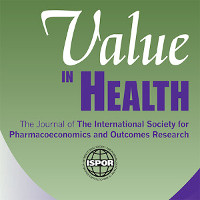Posted by Michael Wonder on 05 Mar 2019
Determining the comparative value of pharmaceutical risk-sharing policies in non–small cell lung cancer using real-world data

2 March 2019 - Risk-sharing arrangements can be used to mitigate uncertainty about the value of a drug by sharing the financial risk between payer and pharmaceutical company.
Holleman and colleagues evaluated the projected impact of alternative RSAs for non–small cell lung cancer (NSCLC) therapies based on real-world data.
Data on treatment patterns of Dutch NSCLC patients from four different hospitals were used to perform “what-if” analyses, evaluating the costs and benefits likely associated with various RSAs. In the scenarios, drug costs or refunds were based on response evaluation criteria in solid tumours (RECIST) response, survival compared to the pivotal trial, treatment duration, or a fixed cost per patient. Analyses were done for erlotinib, gemcitabine/cisplatin, and pemetrexed/platinum for metastatic NSCLC, and gemcitabine/cisplatin, pemetrexed/cisplatin, and vinorelbine/cisplatin for non-metastatic NSCLC.

